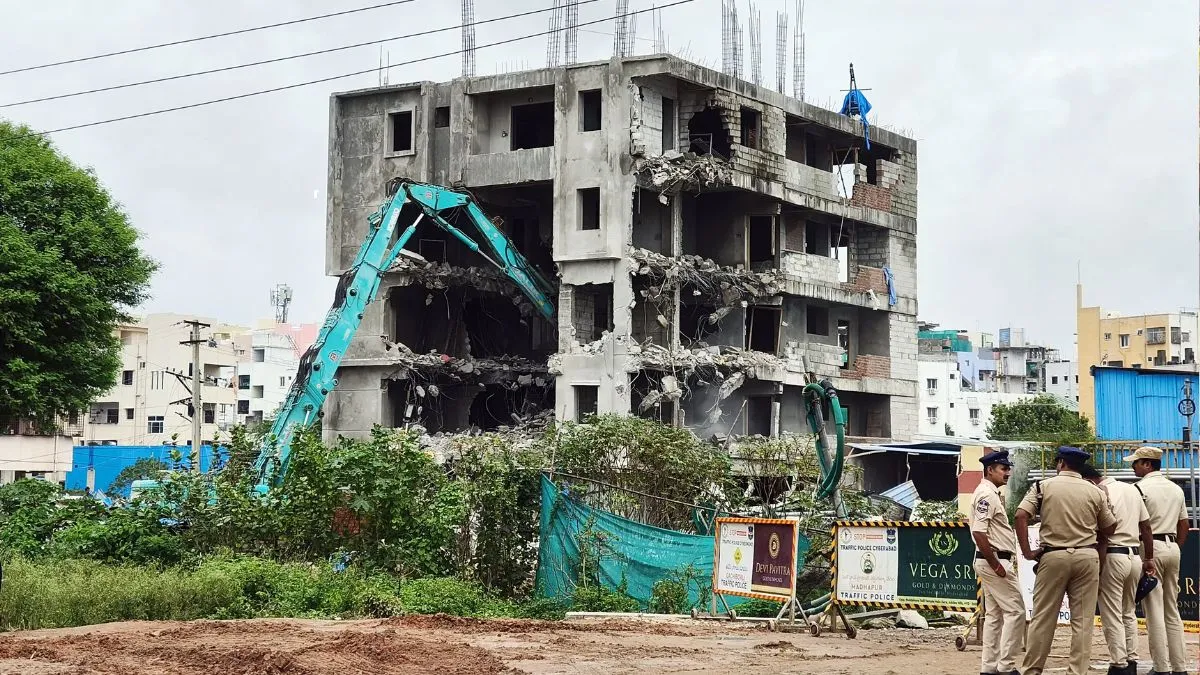- By Imran Zafar
- Thu, 20 Mar 2025 04:20 PM (IST)
- Source:JND
The Telangana High Court criticised the Hyderabad Disaster Response and Asset Monitoring and Protection Agency (HYDRA) for its “selective approach” in tackling illegal constructions. The court stated that government lands can only be safeguarded if unauthorised structures built by influential individuals are also demolished, not just those belonging to the economically weaker sections.
During a hearing on encroachments around Miralam Tank, Justice CV Bhaskar Reddy questioned HYDRA's practice of demolishing structures in slums while ignoring illegal properties in elite areas. The court particularly pointed out encroachments around Durgam Cheruvu and Miyapur lakes, asking why similar action was not being taken there, Times of India reported.
The High Court asserted that if structures near Mir Alam Tank were on government land, necessary action should be taken. It questioned HYDRA’s failure to act against illegal constructions by wealthy individuals, asking, “Do the same laws not apply to the rich and elite?”
"Just by carrying out demolitions in slums does not serve any public good. It serves the purpose only when you act on illegal properties owned by the rich around Durgam Cheruvu, Miyapur lakes," said Justice CV Bhaskar Reddy as quoted by TOI.
The case stemmed from a petition challenging notices issued by the Rajendranagar Tahsildar to homeowners near Mir Alam Tank. The court pressed HYDRA for an explanation on why it had not taken action against illegal constructions in affluent localities, despite its aggressive approach in slum areas.
The court permitted officials to conduct a joint survey of the lake and take legal action against any encroachments found. It reiterated that demolitions should serve the larger public good and must not be limited to poor neighborhoods.
